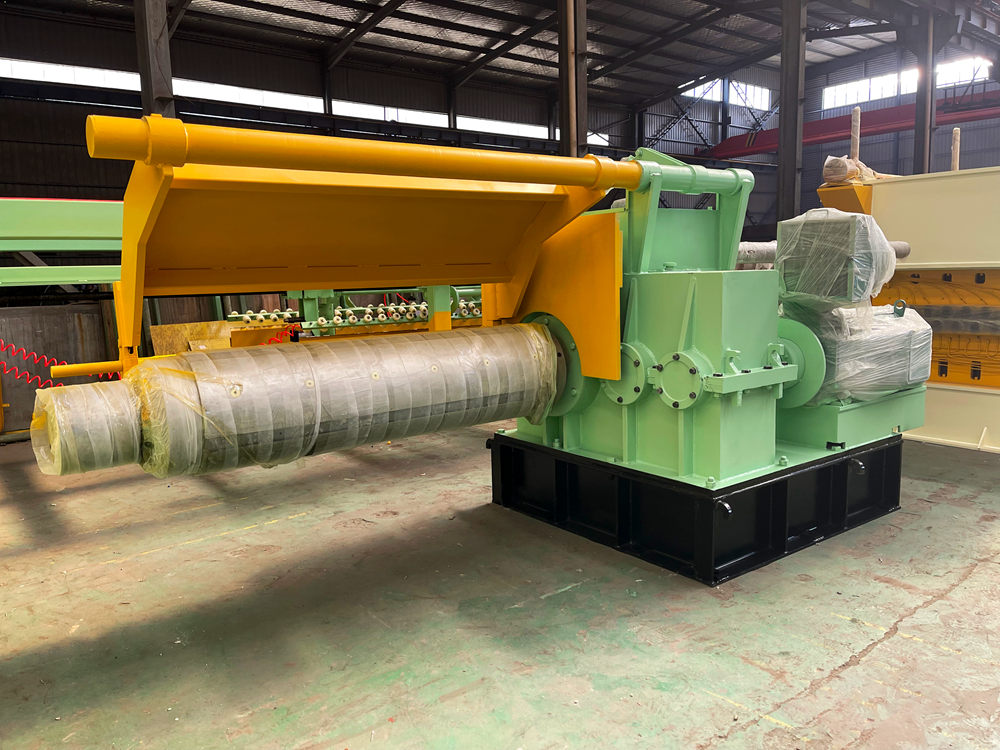
Roll Forming Machine Factory Revolutionizing Manufacturing Processes
In the modern manufacturing landscape, efficiency and precision are paramount. One of the key players in achieving these goals is the roll forming machine factory. These facilities specialize in producing machinery that transforms flat metal sheets into complex shapes with high accuracy and consistency. As industries evolve, the demand for innovative and efficient roll forming solutions continues to rise, making roll forming machine factories an integral part of advanced manufacturing.
Understanding Roll Forming Technology
Roll forming is a continuous bending operation in which a long strip of metal is passed through consecutive pairs of rolls to form the desired cross-sectional shape. This process is particularly popular for manufacturing products that require uniform profiles, such as metal roofing, wall panels, and automotive components. The roll forming process not only enhances production efficiency but also minimizes material waste, making it an environmentally friendly option.
Key Components of a Roll Forming Machine
A typical roll forming machine consists of several critical components, including
1. Decoiler The decoiler unwinds the coiled metal strip and feeds it into the roll forming system. It's crucial for maintaining a steady flow of material throughout the process.
2. Roll Stations The heart of the roll forming machine, these stations contain multiple sets of rollers that gradually shape the metal strip. Each set of rolls performs a specific bending operation to achieve the final profile.
3. Cut-off Machine Once the desired length and shape are achieved, the cut-off machine accurately cuts the formed metal into specified lengths. This ensures uniformity across all produced pieces.
Advantages of Using Roll Forming Machines

Utilizing roll forming technology provides numerous advantages for manufacturers
- High Efficiency Roll forming is a continuous process that allows for high production rates, significantly reducing manufacturing lead times.
- Material Conservation The process generates minimal scrap, as the metal strip is efficiently transformed into the final product with little wasted material.
- Versatility Roll forming machines can create a wide variety of shapes and sizes, making them suitable for diverse applications across industries such as construction, automotive, and furniture.
- Durability and Strength Products manufactured using roll forming are often stronger and more resilient compared to those made through other methods, owing to the structural integrity provided by the steel’s grain direction.
The Future of Roll Forming Machine Factories
As technology advances, roll forming machine factories are beginning to integrate automation and smart manufacturing principles into their operations. The use of robotics and artificial intelligence (AI) is expected to further enhance productivity and precision, enabling factories to meet the evolving demands of the market.
Additionally, the growing emphasis on sustainable manufacturing practices is driving innovations in roll forming technology. Factories are increasingly looking for ways to reduce energy consumption and carbon footprints, making roll forming an attractive solution for eco-conscious industries.
Conclusion
Roll forming machine factories play a crucial role in the modernization of manufacturing processes. By producing efficient, precise, and environmentally friendly solutions, these facilities are not only enhancing production but also setting new standards in the industry. As we look to the future, the integration of advanced technologies within roll forming will likely continue to pave the way for innovative manufacturing solutions, ensuring that industries remain competitive in an ever-changing global market.